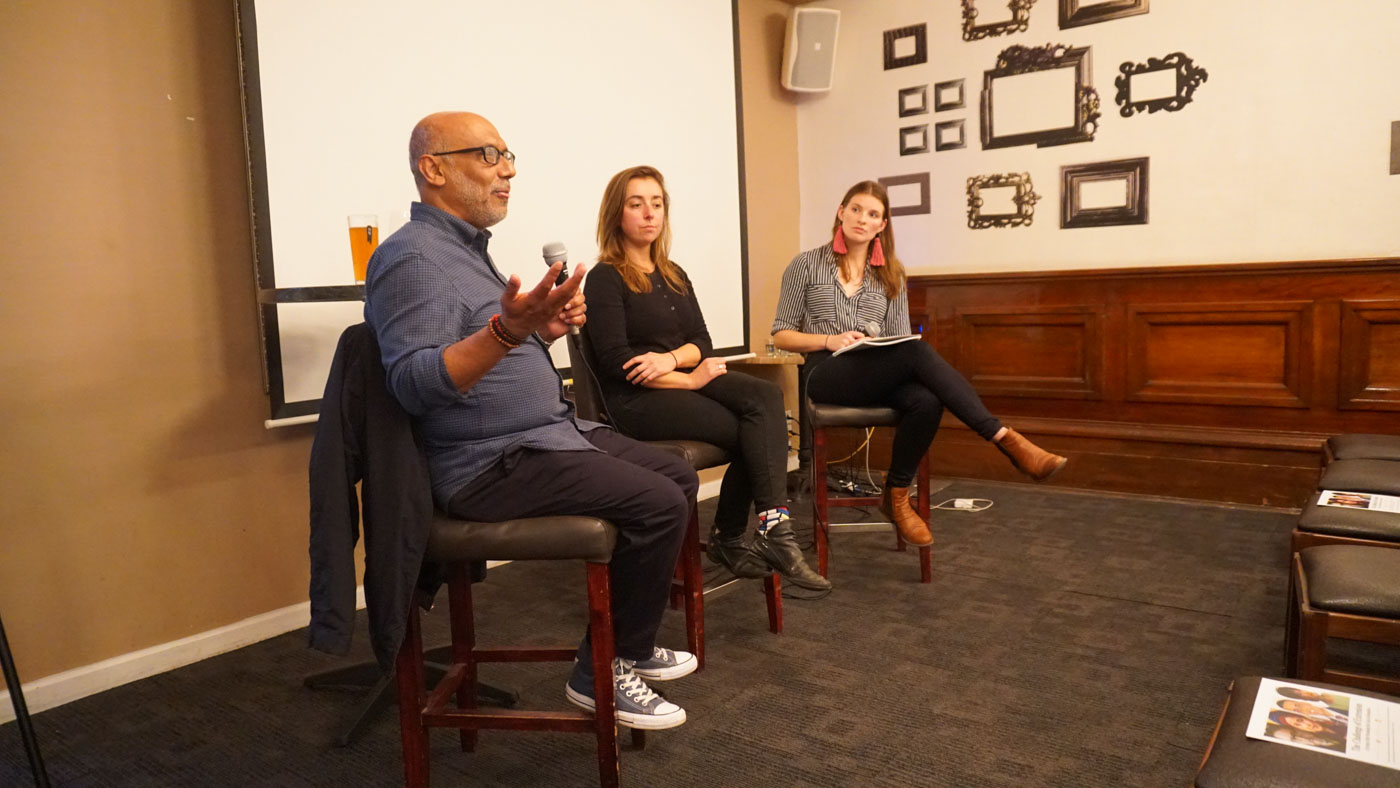 From left: Stop the Boats director Simon Kurian, The Opposition director Hollie Fifer and Edit moderator Rachael Dexter
From left: Stop the Boats director Simon Kurian, The Opposition director Hollie Fifer and Edit moderator Rachael Dexter
Two recent documentaries by Australian filmmakers illuminate the continuing power of the form to expose unbridled power and human rights abuses in the 21st century.
At an Edit forum in May 2019 we spoke to documentary makers Hollie Fifer and Simon Kurian about their craft and most recent work.
These events are off-the-record, but here are a few links to the speakers and interesting tidbits that came up in the discussion.
Hollie Fifer directed the 2016 documentary The Opposition. The film follows a struggle for land rights and resettlement by leaders of the Paga Hill community in Port Moresby, evicted by developers in order to build a five star hotel and marina. The Opposition was subject to a ban in PNG following a legal dispute with Dame Carol Kidu.
Hollie Fifer's personal website
Visit The Opposition website for more information about the film and issues
Watch The Opposition on iTunes
'Australian student's documentary leads to legal battle with PNG politician', ABC 7.30, 14 July 2016
Simon Kurian is a Sydney-based filmmaker. His most recent work Stop the Boats tells the story of how a three word political slogan was used to prevent people from seeking asylum in Australia, condemning them to indefinite offshore detention on Manus Island and Nauru. The film was the Centrepiece screening at the 2019 Human Rights Arts & Film Festival.
Another recent feature documentary from Simon is a film called Toxic Valley, about the health and environmental costs of pesticide use in India and Australia.
We spoke about impact strategies for documentary making, leveraging the interest and emotional responses a film creates to effect some kind of action. DocSociety in the US have published a toolkit with some further information about impact strategies which is worth a look as a starting point.
The discussion at one point touched on Joe Berlinger's 2009 film Crude, and a resultant legal case. You can read a little more about the case here.
The guests were asked about some of their recent favourite documentaries. Simon mentioned journalist/filmmaker Laura Checkoway's documentary Lucky, which followed the life of New York mother Lucky Torres over six years as a great example of long-form documentary making, alongside the stylistically very different work of Michael Moore.
'Exploring the Intersection of Journalism & Documentary in Laura Checkoway's "Lucky"', No Film School, 9 December 2015
Hollie mentioned Werner Herzog ... Read about Werner Herzog's extremely diverse career here, which includes documentaries and feature films.
Or watch him prepare to eat his own shoe, a gesture made to encourage his film-making colleague. In the interview he describes something of his outlook on filmmaking!
And apropos of nothing, this is a classic article about voice and the ethics of representiation in documentary. Worth the effort!
The Edit is a special program of events hosted by the Melbourne Press Club to help the next generation of Melbourne reporters, producers and editors hone their skills and develop their careers. Supported by the Copyright Agency Cultural Fund.